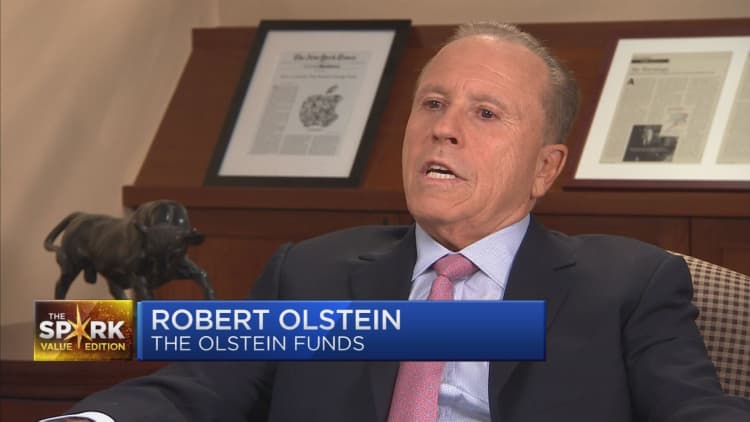
A soon-to-come rule for financial advisors is driving even more money out of mutual funds than they were already losing.
Last week, equity mutual funds hemorrhaged $16.3 billion, their greatest outpouring of money since August 2011, according to the Investment Company Institute.
Those outflows "highlight an important trend that has been gaining momentum for some time now and is being accelerated by two primary drivers," Chris Johnson, head of U.S. ETF distribution at RBC Capital Markets, said in an email.
"Actively managed traditional equity mutual funds are, on average, underperforming" lower-cost products, he said. Secondly, "the approaching implementation of the (Department of Labor) Fiduciary Rule is putting a spotlight on fees."
Source: Bespoke Investment Group, ICI
The Department of Labor, which oversees retirement plans, is set to implement a rule in April 2017 that requires broker-dealers and financial advisors to provide advice that is in customers' best interest for retirement plans.
It may seem surprising that it wasn't always the case that advisors did what was best for their clients, but the White House Council of Economic Advisers says conflicts of interest by investment advisors leads to $17 billion in lost income every year for most savers.
In anticipation of the new rule, BlackRock and some other firms have already cut fees on exchange-traded funds (ETFs) in order to make their products more appealing.
ETFs were already growing in popularity versus mutual funds as an easier, cheaper way for investors to get broad exposure to many stocks. Domestic equity ETFs saw $1.66 billion in issuance last week, ICI data showed.
But those outflows are moving faster now, and regulation is part of the reason.
"The large outflows from domestic equity mutual funds do not reflect shareholder activity. They are primarily the result of conversions from mutual funds into non-1940 Act products," ICI spokeswoman Rachel McTague said in a statement to CNBC.
That means part of the money that moved out of mutual funds has been converted into less regulated financial products, such as collective investment trusts found in retirement plans at large companies.
It's not just ETFs that are benefiting
Still, investor attraction to ETFs can't account for all the outflow from mutual funds, and the data showed that last week some of the money went into bonds, whose funds had estimated inflows of $6.33 billion for the week, according to ICI. Of that, nearly $4 billion was into bond mutual funds, while $2.44 billion was in bond ETF issuance.
From a macro market perspective, analysts also said bond flows could be tied to positioning ahead of a potential December interest rate hike from the U.S. Federal Reserve, while the outflows from equities indicate investor pessimism. The S&P 500 stock index hasn't hit a fresh high since August and is down more than 1 percent for the quarter so far.
Anticipation of the new Labor Department rule is also affecting how major wealth managers do business. Bank of America's Merrill Lynch brokerage unit is eliminating commission-based retirement accounts, The Wall Street Journal reported earlier this month.
But on Wednesday, Morgan Stanley said in a release that its wealth management clients will still be able to pay for retirement accounts through commissions or a fee.
—CNBC's Tom Anderson and Darla Mercado contributed to this report.


